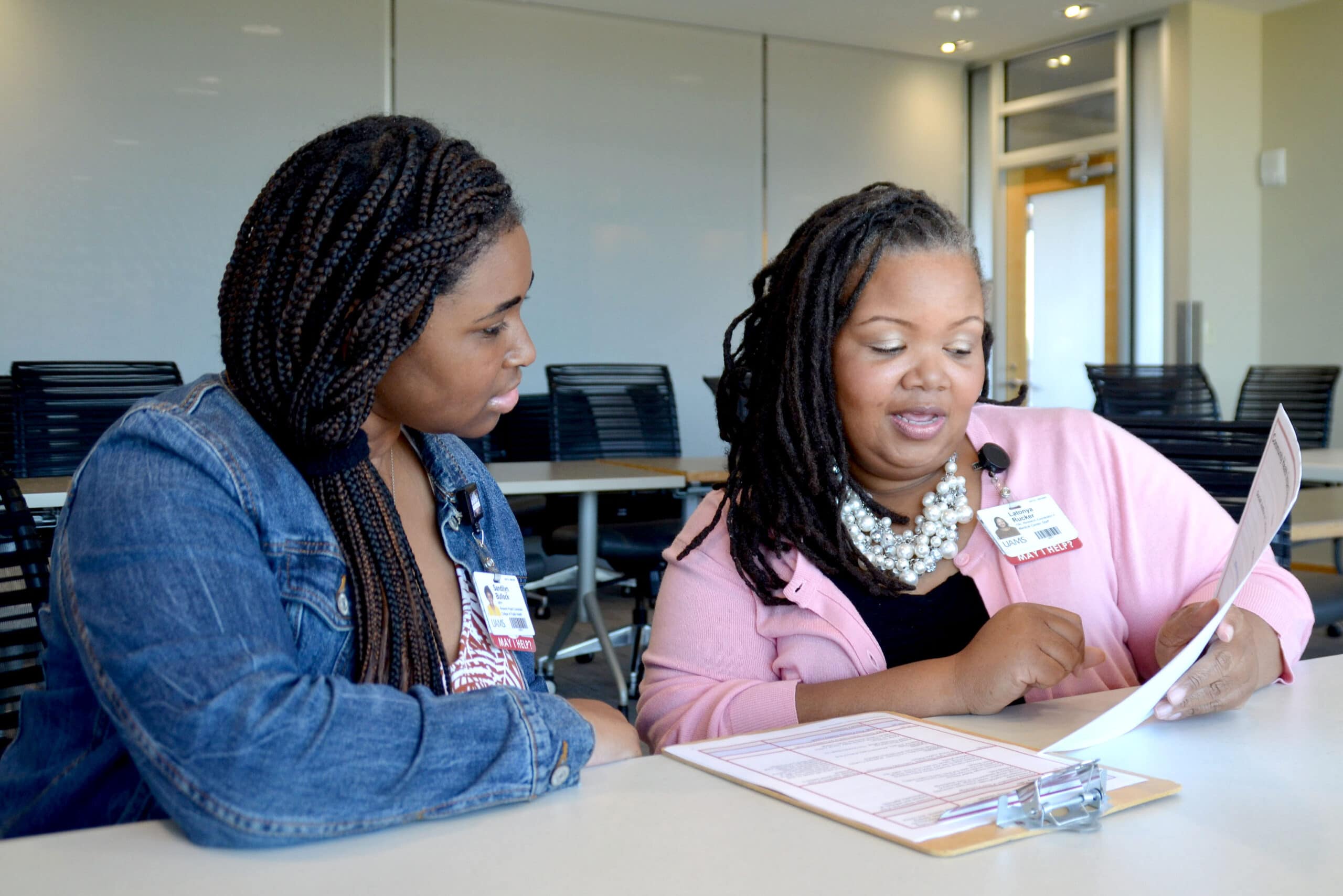Inaugural Community Health Impact Conference Provides Info and Partnerships for Organizations Throughout the State
| The University of Arkansas for Medical Sciences (UAMS) Fay W. Boozman College of Public Health Center for Research, Health & Social Justice presented its first-ever statewide Community Health Impact Conference.
Themed, “Social Justice in Turbulent Times: Reclaiming our Space,” the two-day, virtual event offered several discussions and group activities designed to address issues such as cancer and cardiovascular disease, health outcomes in rural settings and social justice reform.
“Our goal for this conference is to provide tools to help you eliminate cancer and cardiovascular disease through using a social justice lens,” Latonya Rucker, the center’s co-director of community outreach and engagement said during her opening remarks. “Currently, we’re facing chronic health disparities that can be addressed through community partnerships.
“The key components of this conference are community-based research, education, strengthening of health providers’ relationships within rural communities, community development, and strategic planning and implementation,” she added.
More than 150 people attended the conference.
Natalie S. Burke, president and CEO of CommonHealth Action, spoke on the opening day about the role social justice can play in finding solutions to Arkansas’ health disparities.
Burke’s presentation focused on four areas of health disparities: environmental factors, social factors, behavioral factors and clinical factors. Burke placed a major emphasis on the social factors, especially how societal-based identities are placed upon all people and how detrimental they typically are.
Understanding the role of identities is important because it factors into the lives of each of us, she told the attendees.
“Social identity is defined by the group which you’re identified as,” Burke said. “Your identity can change over time. Intersectionality is so important and understanding the role of identity is so important because it factors into life experiences.
“Identity, power, and policy go together. It’s important for us to recognize that and to focus on it. All policy is rooted in identity.”
Burke also explained how things have improved for African Americans over the years. However, improvement is still needed — especially in relation to social justice and health.
“The good news is how society values people can always change for the better,” she said. “But we have a lot of work to do. That’s because the roots of anti-Blackness remain in play.”
Another main point of Burke’s presentation was how a health disparity is a difference of health status or outcomes between groups of people. Burke also mentioned that a health inequity is a specific type of disparity — one that results from systemic, preventable and unjust policies that create barriers to opportunities.
“It’s our job to keep in mind what’s the equitable approach that will ultimately help all people,” she said.
Burke’s address set the stage for the rest of the conference.
Later in day one of the event, Kwami Abdul-Bey, co-director of Washitaw Foothills Youth Media Arts & Literacy Collective, led a discussion on diversity, community development and social justice reform.
A pair of panel discussions highlighted day two.
Bishop Fred Harris, of Rejoice 105.5 FM in Little Rock, led a talk that focused on what society learned during the COVID-19 pandemic and strategies needed to improve health outcomes for Arkansas’ African Americans and the state’s residents who live in rural or underserved areas.
Jeff Cowart, senior vice president of Detroit Medical Center, served as the moderator for a discussion that focused on surviving cancer and thriving afterward. Shalanda Wilson, MBA, and Carline Massey, MBA, — both of whom are part of the UAMS Winthrop P. Rockefeller Cancer Institute staff — were among the panelists who spoke on their personal experience overcoming cancer and how it influences their work as a health care professional.
Throughout the conference, there were special health-related and social justice breakout sessions in which attendees could discuss various topics.
Overall, Rucker and her fellow organizers are pleased with the inaugural conference.
“We’ve received a lot of positive feedback about the conference,” she said. “We have a lot of good info and insight to use for when we begin planning for the next edition of our conference.”
